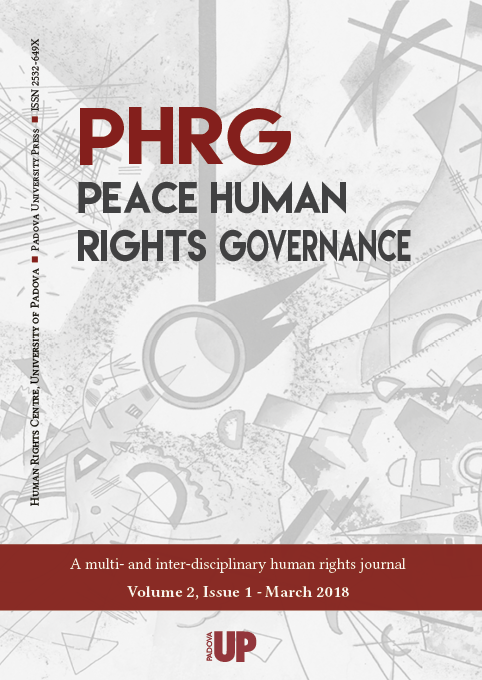Raccolte

Fixing Responsibility to Protect: Lessons from and Proposals for the Case of Libya
- Sito internet
- Peace Human Rights Governance 2(1)
- Tipologia pubblicazione
- Articolo / Saggio
- Pagine
- 75-96
- Lingua
- EN
The intervention of the international community into the developments of the Libyan civil war in 2011 has presented the scholarship with the chance to analyse an exemplary case of application of the principle of Responsibility to Protect. The authors of this research inquire into the theoretical background of this principle, examine the way it was implemented in Libya, discuss the political, legal and moral sides of the phenomenon and scrutinize the impact of the 2011 intervention on the dramatic events witnessed in the country thereafter. The authors support their speculations on the latter issue by conducting the analysis of the problems related to the uncontrolled refugee situation in Libya and the reaction of the international community to this matter within the context of the implementation of the principle of Responsibility to Protect. The paper proposes instances of reform for the institutional apparatus implementing Responsibility to Protect, concrete tools for addressing the current refugee crisis in Libya and set the marker for further research.

